 Forgetting is easy, remembering is hard. However, here are 5 simple tips that you can use to help you improve your memory, especially when you’re studying! 1) Understand the concept Students often struggle memorising information because it is unclear or confusing to them. It is difficult to remember something if you do not fully understand it in the first place. In order to remember new information presented to you, try to re-write the information that you are learning into your own words. (Our article on how you can write effective study notes can be viewed here). However if you are unable to write your own notes, it is a good sign that you do not fully understand the concept that you're learning. 2) Revise frequently As we all know, it is advisable not to study the night before an exam or cram before a major exam. It is difficult to retain information if you study at the last minute. The key to memorise information effectively is to frequently review your notes and study materials weeks or days before the exams. If possible, jot down or highlight important information that will probably show up in an exam. You should adapt this study strategy after revising for an important topic. Through repetitive daily revision, you will eventually begin to remember and memorise information easily. 3) Mnemonic devices Many students use mnemonic devices to remember content which are difficult to memorise. Such useful mnemonic types include a) music mnemonic: songs and jingles (A common example is how children remember the alphabet by singing the ABC's.) b) Name mnemonics: The first letter of each word is combined into a new word. For example: ROY G BIV are colors of the rainbow. c) Expression or word mnemonics: The first letter of each word is combined to form a phrase or sentence. d) Picture mnemonics: The information is constructed into a picture. It's easier to remember a picture rather than details from a book. This strategy is especially useful when studying abstract or confusing subjects. To do this, create images in your mind that you can relate to, or have similarities to, the abstract concept. When abstract concepts can be “seen” they are much easier to remember. 4) Active Studying In order to remember or learn a concept, you must practise active studying. Some examples include reading your notes or textbook out loud. Another way is to teach your friend and help to answer any questions that he/she may have. Therefore, if you have something important to remember, repeat it to yourself as often as possible and if you can, talk about it to your friends or family. 5) Balanced Diet Last but not least, a balanced diet is crucial for a good memory. If you eat too much, you will feel tired and drowsy to study. If you eat too little, you will feel hungry and fatigued. Therefore, both of these scenarios are obstacles standing in your way towards a better memory. Eat in moderation and you will study better! By implementing these 5 study strategies into your revision, you will increase your ability to retain and memorise important information before the PSLE. Feel free to leave a comment if you have other suggestions or methods to improve one's memory! Is your child taking his/her PSLE exams this year? If so, feel free to call us @ 6457-0881 or email us @ [email protected] to find out more about our PSLE Intensive Revision Courses (English, Maths and Science) today. Alternatively, you may call or email us to find out more about our weekly K1-S4 tutorial classes. (written by Mr Prem, tutor of BrightMinds Learning Centre)
As quoted by Benjamin Franklin, “If you fail to plan, you plan to fail.” This applies to all aspects of our life, including our studies. To avoid getting lost in the midst of your revision in the coming months before the PSLE, you should start to create your own study schedule now. Here are 3 steps to create an effective study plan: 1) Prioritize Your Subjects and Topics: Do not assign the same period of time for each subject and topic. You will need to prioritize which subjects and topics are more important and challenging to you, and dedicate more time to that than others. It is crucial to spend more time on subjects and topics that you need extra practice or help in. For example, if Science is your weakest subject, you will need to set aside more time to revise your Science topics. And if your weakest Science topic is “Adaptation of Animals”, then you will need to dedicate more time towards that topic than the others. 2) Organize Your Time Wisely: After you have determined the number of hours you will need to set aside to study for each subject and topics, choose the best time to study. For example, you may choose to start studying after an hour of lunch break. Or, some pupils may choose to start studying after a short nap as they will feel more refreshed. Once you have decided what works best for you, stick with it. 3) De-stressing and Family Time You may schedule breaks for relaxation in between your revision schedule. These relaxation breaks are useful as it is a form of de-stressing and thus, helps you to focus better during your revision. These relaxation breaks should not be more than 30 minutes, and are not to be scheduled too often. For example, you may set aside 15 minutes of snack break after studying for more than an hour. Other forms of relaxation include reading a storybook or newspaper, a quick jog, baths, or even a short trip to your nearest minimart! Family vacations should be kept to a minimum during the PSLE year and should only last for a few days. As long as you have a well-planned revision schedule and follow it closely, you should not feel guilty about spending time with your family. For many primary schools, the involvement of CCAs for Primary 6 pupils is significantly reduced. This allows more time for learning and revision. Therefore, your study timetable should help you to accomplish the following: - complete revision for all P6 topics by end of July, - set aside more time to attempt mock exam papers in August and September. When you have finished creating your study timetable, paste it on the wall in front of your study table so that you can see it and follow it. By planning your study timetable now, it will help you to stay more focused and therefore, you will be more prepared for the PSLE. Is your child taking his/her PSLE exams this year? If so, feel free to call us @ 6457-0881 or email us @ [email protected] to find out more about our PSLE Intensive Revision Courses (English, Maths and Science) today. Alternatively, you may call or email us to find out more about our weekly K1-S4 tutorial classes. (written by Ms Marie Bernadette from BrightMinds Learning Centre)
Taking notes is a great way to remember and revise important key concepts that you have learnt in school. It will also help to narrow down the large amount of concepts that you’ll need to study later on, before your exams. Here are 3 tips on writing study notes that really work: 1) Write your own notes, in your own words. Copying blindly from your school’s textbook is ineffective; you should always paraphrase and write in your own words. By doing so, it is a great way of ensuring that you have fully understood the core concepts. 2) Develop your own note-taking style. It is important that you develop a note-taking method that suits your learning style and works best for you. Some choose to use different colored post-its, pens or highlighters to identify important key concepts or sentences. You can also use short-forms, symbols or abbreviations when writing notes. What is important is that your notes make sense to you and you understand your own style of note-taking. 3) Organise, organise, organise. I cannot stress how important it is to write your notes neatly in an organized manner. If your notes are messy and disorganized, you will not be able to revise properly and this defeats the purpose of writing your own notes for an easier revision. Here are some suggestions on how you can write your own notes in an organized manner: a) Use headings and sub-headings while writing. b) Write your notes on one exercise book per subject, as opposed to many pieces of papers per subject. This makes it easier for you to find your notes, and reduces the hassle of losing random pieces of paper. c) Keep your note-taking exercise book in a safe and organised place at all times! d) It is also worth the time to re-write parts of your study notes that you find more difficult, especially important concepts that are likely to be tested during the exams. By re-writing your notes in a more organized way, it will help to firmly consolidate what you’ve written. e) Make sure that your handwriting is neat and tidy. (This is a no brainer, but such an important point that many pupils fail to follow through.) Writing your own notes takes time and effort, but it is is a major key to academic success. It is a form of studying itself as you are reviewing all the key concepts needed to excel in the exams. By writing your own notes in an organized manner, it will help to increase your confidence towards the subject, which in turn will increase your performance during the exams! Is your child taking his/her PSLE exams this year? If so, feel free to call us @ 6457-0881 or visit www.PSLErevision.com to find out more about our award-winning PSLE Intensive Revision Courses today. Alternatively, you may call us to find out more about our weekly K1-S4 tutorial classes. (written by Ms Marie Bernadette from BrightMinds Learning Centre)
Let’s be honest, how many of us have written down our life goals? Not surprisingly, most of us have not. There was a study conducted during the 1979 Harvard MBA program where graduate students were asked “Have you set clear, written goals for your future and made plans to accomplish them?” The result- only 3% had written goals and plans, 13% had goals but they didn’t write them down and 84% had no goals at all. After 10 years, the same group was interviewed again and the result was shocking. The 13% of the class who had goals, but didn’t write them down, was earning twice the amount of the 84% who had no goals. The 3% who had written goals were earning, on average, ten times as much as the other 97% of the class combined! Although this research only focuses on earnings to quantify success, it is still an extremely motivating example of why creating clear goals and writing them down is a major key to success. Are you now feeling motivated to write down your study goals? Here are 3 steps to creating clear and measurable goals that will lead you to huge success. 1) Create a Vision What is your dream school? If you want to enter into that school, what should your PSLE score or grades be? Be clear and specific in your goal-setting. Know what you want to achieve before you start studying. Don’t be disheartened if it seems too difficult to enter into your dream school. This is why goal-setting is crucial and this brings us to the next step… 2) Set Realistic Benchmarks Most goals are achieved over small achievements or successes. Firstly, break your goals into small actionable steps and assign realistic time frames to each of them. It is no use in trying to cram too much information or revising too many topics on a day; this will lead to unnecessary stress and cause disappointment. You should practice and review manageable number of topics every day. You may set aside more time to revise a more challenging topic and lesser time to revise a topic which you are familiar or good at. As the saying goes, Rome wasn’t built in a day. We shouldn’t expect to accomplish something or achieve success immediately. By setting small study goals, this makes it much easier for us to achieve our final goal. 3) Celebrate Your Success Do not forget to celebrate your success when you have accomplished your benchmarks! Have a small celebration, and continue to study. Success is the sum of small efforts repeated day in and day out, so continue to study hard, and you will reach your final study goal eventually. If you can dream it, you can do it. (PSLE Study Tip #2 will be up soon, so stay tuned…) (written by Mr Prem, Maths tutor of BrightMinds Learning Centre)
As a tutor who has been teaching Maths for many years, the most common question I've received from concerned parents is "How can my child avoid careless mistakes?" Therefore, I hope that this SUPER approach will be of great help to those who always make careless mistakes in their Maths problem sums. The SUPER Methodology to Math Problem Solving Study and Understand the problem: · What is the problem about? · What information do I have? It is crucial to underline or highlight the important keywords from your question. · What am I asked to find out? Plan a solution · What method should I use? · Have I solved similar problems before? · What information should I consider first? · What information should I consider next? Execute the plan · Write down the steps of my solution · Show all working clearly and neatly! · Do not skip too many steps or depend too much on mental calculations. Review the answer · Are my units correct? · Does my answer make sense? · Have I answered the question? If you have time, you may put your answers back into the math problem or equation to check for accuracy. Time Management is also crucial in a Mathematics exam. Do not spend too much time stuck on one question; move on to the next question and return to that challenging question when you have completed the other questions. Also, try not to spend too much time solving questions with only 1 to 2 marks; your focus should primarily be on more complex questions (ie: 3 to 5 marks questions). Most importantly, all pupils must constantly practice before they can master the art of avoiding careless mistakes. By using the above SUPER approach in solving problem sums, I hope that all pupils will become more confident in their Mathematics, which is important for a high-pressure Mathematics examination situation. (written by Ms Marie Bernadette, from BrightMinds Learning Centre)
In a typical English Language examination, composition writing is one of the most important aspects of the subject. Therefore, in order to excel in an English Language paper, the pupil must be well-versed in writing compositions. Moreover, the new 2015 PSLE syllabus for composition writing has become more challenging and the topics are more wide-ranging. Previously, pupils had to choose from two questions with fixed scenarios to write a narrative essay. Now, pupils are to weave a story from three pictures. For example, a pupil may get a series of three pictures and he/she can write a story based on one, two or all three pictures. Since this article is on how to write a good composition, let us delve straight into that. In writing a good composition, a pre-writing plan is crucial. Spend about 10 minutes to decide what you want to write in your composition in point form. Planning (5 Ws and 1 H) 1) Who are the characters? 2) Where does the story take place? 3) When does it take place? 4) What happened? Include the act of crisis and climax (the point with the most dramatic or important action). 5) Why did it happen? 6) How was it solved? Include the moral of the story or lesson learnt, if any. After your pre-writing plan, you should be more prepared to start writing your composition. All compositions are made up of three components- the introduction, body and conclusion. Failure to write any of these components will most likely result in a fail grade. The Introduction Your introduction should arouse the interest of your examiner, and make he/she so interested in your story that he/she want to continue reading it. If your introduction fails to catch the interest of your examiner, then you have not done a great job with it. Your introduction should have the following important features:
The Body You should remember that the body is where the majority of your marks lie, thus it is important for you to plan before writing your composition. If you do not plan before writing, you are likely going to forget some very important points when you’re writing your actual story. Take note of these key points when you are writing:
The Conclusion The conclusion is the last, but definitely not the least part of a good composition. The resolution, lesson learnt by the character/s or moral ending should be included at your conclusion. Most importantly, do not end your story abruptly. After you have finished with your composition, it is important that you take a minute to read over what you have written. Check your composition and edit where necessary. Some factors to consider when you are checking your composition: Are there mistakes in grammar, spelling and punctuation? How appropriate are the words used? Are there mundane words which can be replaced with better words? I hope that the above guidelines were useful to you. As the saying goes, practice makes perfect, hence continue to practice writing different compositions and you will definitely improve or score well for your next English composition. Good luck! |
AuthorWelcome to BrightMinds Learning Centre! All articles are written by our own team of tutors who have taught for many years. Please call 63633876 if you'd like to find out more about our K1 to S4 tutorial classes. Archives
August 2023
Categories |
To register please call 6363-0180 or WhatsApp 9147-4941

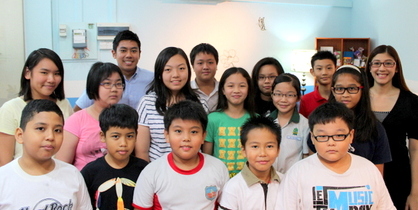
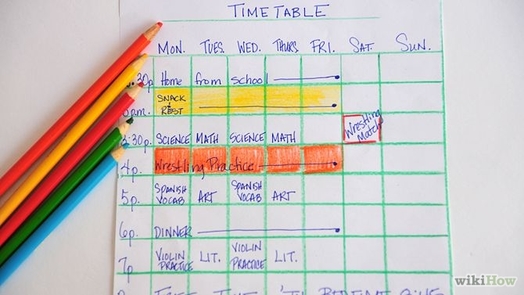
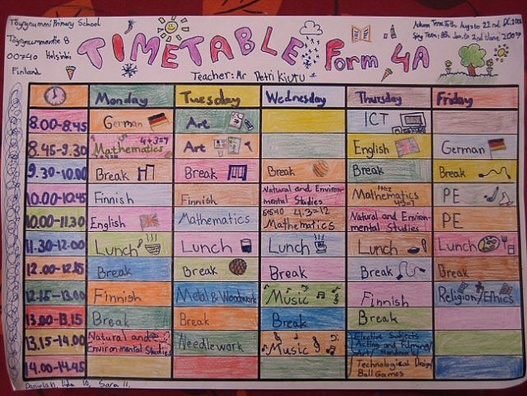

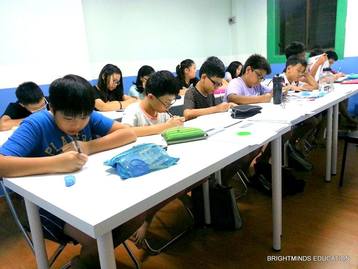
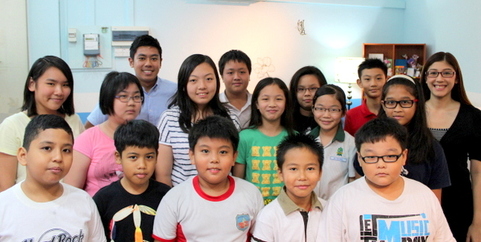
 RSS Feed
RSS Feed
